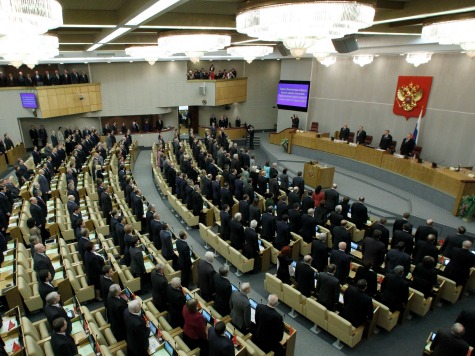
On Wednesday, the Federation Council in Russia approved new requirements for foreigners to receive a work visa or residency permit while the State Duma passed a law that would make it easier for native Russian speakers to receive citizenship.
The Moscow Times said the citizenship law passed on its second reading through the Duma. They also reported there are a few people who view this as a way to bring in the ethnic Russians and Russian speakers in east Ukraine. Russia interfered and annexed Crimea from Ukraine because of claims of mistreatment to the Russian speakers and Moscow has made it clear they will protect Russian speakers in east Ukraine.
Concerns were elevated after the Russian ambassador to Latvia told a radio station Moscow was ready to grant citizenship to Russian speakers in the country. After that, a Russian diplomat told the United Nations Human Rights Council that Moscow is concerned about the treatment of Russian speakers in Estonia. Both countries immediately alerted NATO and voiced a fear they could be Putin’s next targets.
A UN Human Rights reported released on Tuesday found there very few cases of Russian speakers mistreated in Kyiv, Ukraine during the Euromaidan protests between November-February. In fact, they encouraged everyone to stop the misinformation flow to prevent any violence from occurring.
At the same time, Russia made it harder for non-native Russian speakers to receive work visas. According to Interfax-Russia, the people “must prove knowledge of Russian language and knowledge of history, as well as the legal framework of the Russian Federation.” The foreigner has to provide official documents to prove all three.
Such documents is a certificate. This is a document of state education at no less than the basic general education, issued by the educational institution in the state, which was part of the Soviet Union until September 1, 1991.
Certificate will be issued by educational institutions in Russia or abroad, are included in the lists of educational organizations conducting examination in Russian as a foreign language, Russian history and the basics of Russian legislation.
If a document is more than five years old, the person has to receive a new one. It will not apply to those already in Russia, but when it is time to renew, the person must provide the proper education credentials.
Federation Council member Lyudmila Bokova told The Moscow Times “the bill would exempt those under 18 years old, over 60 and students at accredited institutions, as well as qualified foreign specialists and their families.” The new requirements also do not apply to workers from Central Asia if they come to Russia to perform manual labor.

COMMENTS
Please let us know if you're having issues with commenting.